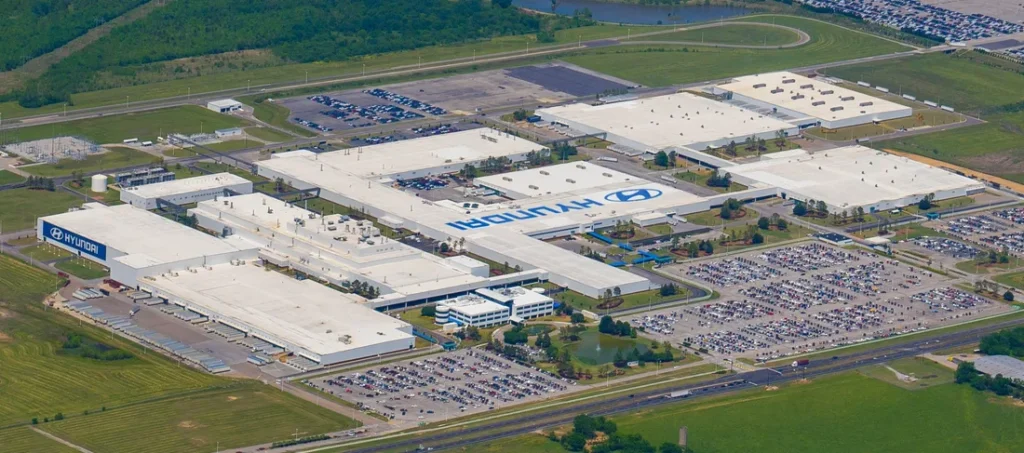The United Auto Workers (UAW) said on Thursday that over 30% of workers at Hyundai Motor’s Alabama plant have signed cards to join the union so far.
In November, the UAW announced it was starting its first-ever effort to organize the entire non-union auto sector in the United States after winning record new contracts with the Detroit Three automakers.
The UAW has been unsuccessful for decades in organizing auto factories operated by foreign vehicle manufacturers.

In November, the Detroit-based UAW announced a joint campaign by workers at 13 non-union vehicle manufacturers to join the union. These vehicle manufacturers employ about 150,000 workers in their U.S. assembly plants, which is equal to the number of employees represented by the UAW with new labor agreements signed by the Detroit Three companies.
A Hyundai spokesperson said, “The decision to be represented by a union is up to our team members,” and in November, the company had said it would increase wages for U.S. hourly production workers by 25% by 2028.
Earlier this week, the UAW said that over 10,000 autoworkers from 13 non-union automakers had signed union cards.
The UAW has stated that if 30% of the employees at a non-union plant sign up, it would make it public.
UAW President Shawn Fain said last week that employees from various sectors beyond vehicle manufacturers are wanting to join. He mentioned that many plants are getting close to the 30% threshold, saying, “We have a lot of momentum here.”
Fain is hosting an event with President Joe Biden in the Detroit area on Thursday, who has strongly supported the union organizing efforts.
If 50% of employees want to join, the UAW promises to organize a rally with Fain to promote this effort. At 70%, with an organizing committee, the UAW will seek recognition or demand a union representation vote.
Several non-union vehicle manufacturers have responded by increasing wages for American factory workers.
In December, the UAW said that over 30% of workers at a non-union Volkswagen plant in Chattanooga, Tennessee, had signed authorization cards, and last month announced that more than 30% of workers at the Mercedes-Benz Vance, Alabama, plant had done so as well.
Previous attempts to organize Nissan plants in Mississippi and Tennessee failed by a large margin, and two attempts to organize VW’s Tennessee plant failed by a narrow margin.
